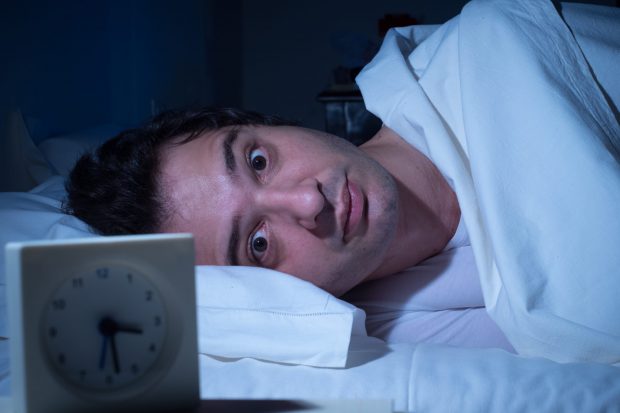I enjoy a good streaming service, be it Netflix, Disney+, or Amazon Prime. Admittedly, one of my favorite places to log in, and the stream is from my bed. However, one thing I’m not guilty of is falling asleep while catching up on the latest episode of Squid Game. In fact, it appears that I was protecting my longevity when doing this, as a new study has revealed that falling asleep in front of the TV could lead to an early death.
Sleeping With TV Affects Longevity
The study, published in Sleep, set out to find a link between late at night activities in older adults in the U.S. and its association with cardiovascular disease (CVD) risk factors. For the study, researchers from the Northwestern School of Medicine examined the impact of ambient light on the health and sleeping habits of 552 people between the ages of 63 and 84.

tommaso79/shutterstock
The findings revealed that participants who slept under ambient light were more likely to experience hypertension, diabetes, obesity, and insulin resistance in the morning. In fact, 17.8% of the participants who slept with the TV on suffered from diabetes, compared to only 9.8% who didn’t sleep with the TV on. Also, 40.7% of participants who slept under ambient light were obese, compared to the 26.7 who were also obese but slept in darkness.
For the team, the results of the study can be linked back to the fact that sleeping under ambient light affects glucose regulation, and insulin resistance has been associated with Type II diabetes, cardiovascular disease, and hypertension.
According to a previous study published in PLOS Medicine, extreme obesity can shorten your lifespan by 14 years. Additionally, research has also found that people with type 2 diabetes, on average, have a shorter life expectancy of about 10 years.
Sleep habits and longevity
In addition to the aforementioned findings, the study also revealed that participants who fell asleep in ambient light were more likely to stay awake later and then sleep later the next day.
“We know late sleepers tend to also have a higher risk for cardiovascular and metabolic disorders,” Lead researcher Phyllis Zee told CNN.
The saying “the early bird catches the worm” is anything but a common expression. In fact, one 2018 study suggested that night owls have a 10% heightened risk of early mortality.
Screen habits at night
“People should do their best to avoid or minimize the amount of light they are exposed to during sleep,” Phyllis Zee, CNN
It’s not just your TV habits that are a cause for concern at night, as any screen that emits blue light can affect your sleep health, which in turn can compromise your longevity. If you’re worried about your devices affecting your sleep hygiene, then here’s how you can safely use your tech at night.
Tech at night tips:
- Make Your Bedroom a Screen-Free Zone
- Adopt a Relaxing Bedtime Routine
- Use Nighttime Mode Towards The End Of The Evening
Want to know more?
At 46 years old, Eva Longoria is truly the embodiment of health and wellness. As the years go by, the Desperate Housewives actress continues to prioritize her longevity. In fact, she recently shared two health habits that had changed in her 40s, and these two could be the key to why she’s aging so well: eating well and sleeping well.
References
Kitahara, C. M., Flint, A. J., Berrington de Gonzalez, A., Bernstein, L., et al. (2014). Association between class III obesity (BMI of 40-59 kg/m2) and mortality: a pooled analysis of 20 prospective studies. PLoS medicine, 11(7), e1001673. https://doi.org/10.1371/journal.pmed.1001673
Kim, M., Vu, T. H., Maas, M. B., Braun, R. I., Wolf, M. S., Roenneberg, T., Daviglus, M. L., Reid, K. J., & Zee, P. C. (2022). Light at night in older age is associated with obesity, diabetes, and hypertension. Sleep, zsac130. Advance online publication. https://doi.org/10.1093/sleep/zsac130





![women [longevity live]](https://longevitylive.com/wp-content/uploads/2020/01/photo-of-women-walking-down-the-street-1116984-100x100.jpg)









